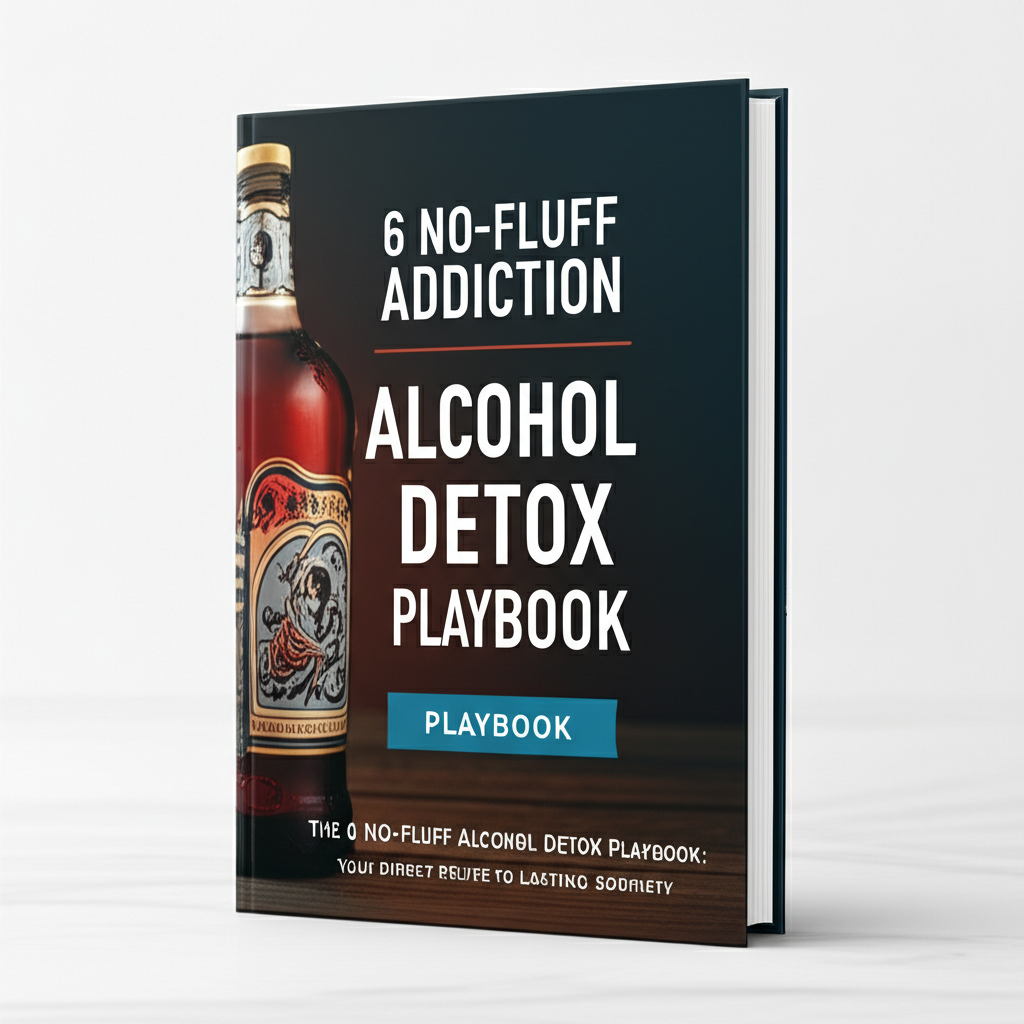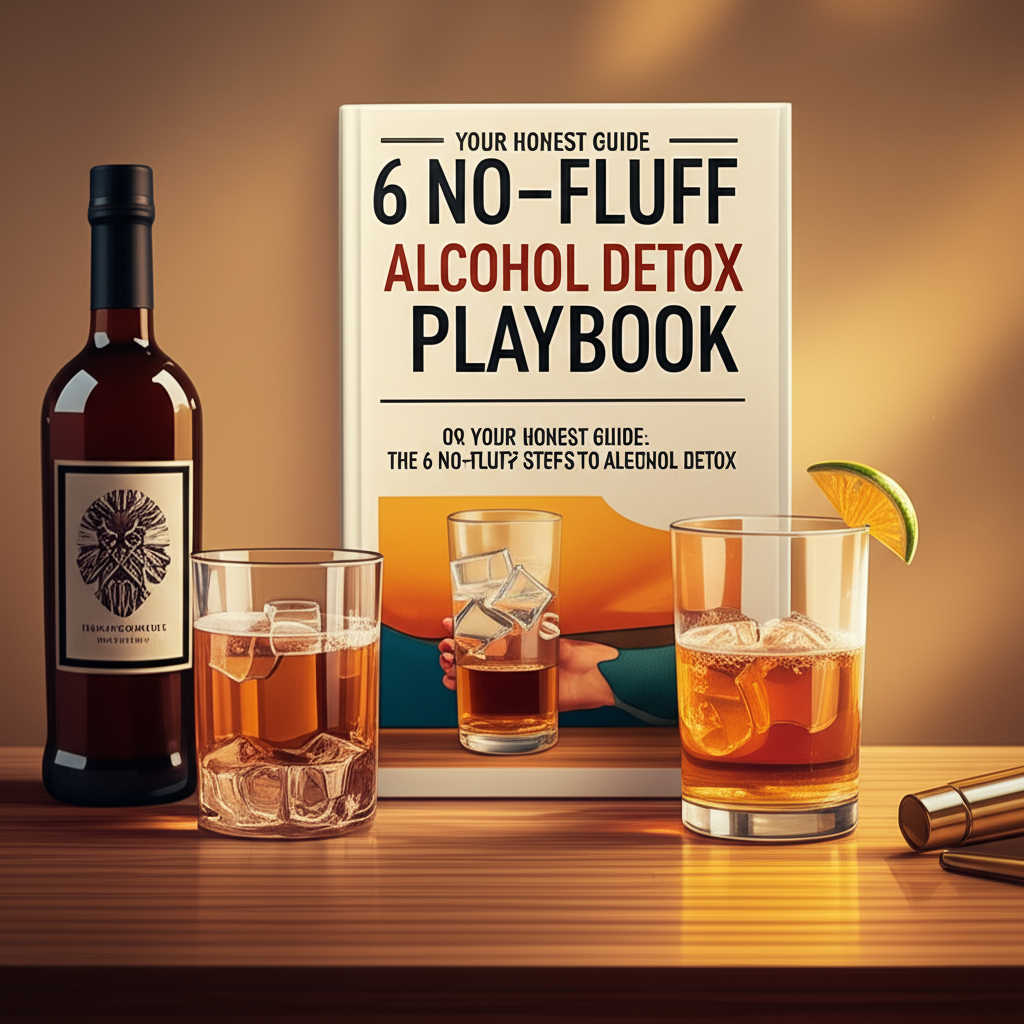The desire to break free from alcohol addiction is a powerful first step, but the path to sobriety often feels daunting, especially when facing the prospect of detox. Many myths and misinformation surround alcohol withdrawal, leading to fear and confusion. The truth is, a safe and effective alcohol detox is not only possible but crucial for a successful recovery journey.
This article cuts through the noise, offering a 6 No-Fluff Addiction Alcohol Detox Roadmap – a clear, practical guide designed to demystify the process and empower you with actionable knowledge. We’ll explore why professional medical supervision is non-negotiable and outline the precise steps you need to take to navigate withdrawal safely and lay a solid foundation for long-term sobriety. If you’re ready to reclaim your life from alcohol, this roadmap is for you.
Understanding Alcohol Detox: Why It’s Crucial (and Not a DIY Project)
Before diving into the steps, it’s vital to understand what alcohol detox entails and why attempting it alone can be dangerous. Alcohol dependence is a complex condition that alters brain chemistry. When a heavy drinker suddenly stops or significantly reduces alcohol intake, the body reacts to the absence of the substance it has become reliant on. This reaction is known as alcohol withdrawal syndrome.
The Dangers of Unsupervised Withdrawal
Alcohol withdrawal symptoms can range from mild discomfort to life-threatening emergencies. The severity depends on various factors, including the duration and amount of alcohol consumed, overall health, and history of previous withdrawals.
Common alcohol withdrawal symptoms include:
- Mild to Moderate: Tremors (the "shakes"), anxiety, nausea, vomiting, headaches, sweating, insomnia.
- Severe: Hallucinations (auditory, visual, or tactile), seizures, and Delirium Tremens (DTs). DTs are a severe and potentially fatal form of withdrawal characterized by confusion, rapid heart rate, high blood pressure, fever, and extreme agitation.
Attempting to detox at home without medical supervision puts you at significant risk for these severe complications, which can lead to permanent damage or even death. A medically supervised detox ensures that professionals can monitor your vital signs, manage symptoms, and intervene immediately if complications arise.
What "No-Fluff" Really Means
When we say "no-fluff," we mean practical, evidence-based strategies that prioritize safety and effectiveness. This roadmap isn’t about quick fixes or unproven remedies. It’s about empowering you with the knowledge to make informed decisions and access the right professional support for a successful and sustainable recovery. It focuses on tangible actions and real-world considerations, cutting through the emotional and often overwhelming aspects to provide a clear path forward.
The 6 No-Fluff Steps to a Successful Alcohol Detox
Embarking on an alcohol detox journey requires careful planning, professional guidance, and unwavering commitment. Here are the six essential steps:
Step 1: Honest Self-Assessment and Commitment
The first, and arguably most challenging, step is to honestly confront your relationship with alcohol and make a firm commitment to change. This isn’t just about wanting to stop drinking; it’s about understanding the depth of your dependency and preparing yourself mentally for the challenges ahead.
- Acknowledge the Problem: Recognize that your alcohol use has become problematic and is negatively impacting your life, health, relationships, or work. Self-awareness is the cornerstone of recovery.
- Identify Your "Why": What are your motivations for getting sober? Is it for your health, family, career, or personal well-being? Clearly defining your "why" will be a powerful motivator during difficult times.
- Commit to the Process: Understand that detox is just the beginning. Commit not only to getting sober but also to engaging in the subsequent recovery steps. This commitment should be a deeply personal decision.
This initial step often involves introspection, perhaps journaling your thoughts or confiding in a trusted friend or family member. It’s about setting a clear intention to move forward.
Step 2: Seek Professional Medical Evaluation (Non-Negotiable!)
This is the most critical step and one that cannot be skipped. Before any detox attempt, you must consult with a healthcare professional specializing in addiction medicine. Self-detoxing is dangerous and rarely successful in the long term.
- Consult an Addiction Specialist: Schedule an appointment with your primary care physician or, ideally, an addiction specialist, psychiatrist, or a reputable detox facility.
- Comprehensive Assessment: The medical team will conduct a thorough evaluation, including:
- Physical Health Check: Assessing your overall health, liver function, heart health, and any co-occurring medical conditions.
- Mental Health Screening: Identifying any underlying mental health issues (like anxiety, depression, or trauma) that may be contributing to alcohol use or complicating withdrawal.
- Detailed Alcohol Use History: Understanding the frequency, quantity, and duration of your drinking, as well as any prior withdrawal experiences.
- Personalized Recommendations: Based on this evaluation, the medical professional will recommend the safest and most effective detox environment for you (e.g., inpatient medical detox, outpatient detox with daily check-ins). They will also discuss potential medications to manage withdrawal symptoms.
This professional assessment is the foundation of a safe and effective detox. It ensures your unique needs and risks are addressed.
Step 3: Develop a Personalized Detox Plan
Once you’ve undergone a medical evaluation, a personalized detox plan will be developed. This plan is tailored specifically to your health status, addiction severity, and personal circumstances.
- Inpatient vs. Outpatient:
- Inpatient Detox: Recommended for severe alcohol dependence, those with a history of severe withdrawal symptoms (like seizures or DTs), individuals with co-occurring medical or mental health conditions, or those without a stable home environment. This involves staying at a specialized facility 24/7.
- Outpatient Detox: May be suitable for individuals with milder dependence, good overall health, a strong support system at home, and the ability to attend daily medical appointments.
- Medication Protocol: The plan will likely include medications to alleviate withdrawal symptoms and prevent complications. Common medications include benzodiazepines (e.g., Ativan, Valium, Librium) to calm the nervous system and prevent seizures, as well as other supportive medications for nausea, sleep, or pain.
- Duration and Support: The plan will outline the estimated duration of detox (typically 3-7 days for acute withdrawal) and the level of medical and emotional support provided.
- Aftercare Planning (Initial Stages): While detailed aftercare comes later, the initial plan should already consider the transition out of acute detox.
This plan ensures a structured and medically sound approach to withdrawal.
Step 4: Navigate Withdrawal with Medical Support
This is the active phase of detox, where your body processes and eliminates alcohol. It’s crucial that this phase occurs under continuous medical supervision.
- 24/7 Monitoring: In an inpatient setting, medical staff will constantly monitor your vital signs (heart rate, blood pressure, temperature) and assess your withdrawal symptoms.
- Symptom Management: Medications will be administered as prescribed to manage anxiety, tremors, hallucinations, and prevent seizures. The dosage will be carefully adjusted based on your symptoms.
- Comfort and Safety: The environment will be designed for your comfort and safety, free from triggers and stressors.
- Hydration and Nutrition: Proper hydration and nutrition are vital during detox. Medical staff will ensure you receive adequate fluids and nourishing food, which can be challenging due to nausea or loss of appetite.
- Emotional Support: While the focus is on physical stabilization, compassionate emotional support from staff can help you navigate the psychological discomfort of withdrawal.
Navigating withdrawal with expert medical support significantly reduces risks and makes the process as comfortable and safe as possible.
Step 5: Transition to Long-Term Recovery (Beyond Detox)
Detox is just the first hurdle; it’s the process of getting alcohol out of your system. True recovery begins after detox, focusing on addressing the root causes of addiction and building a sustainable sober life. This transition is critical for preventing relapse.
- Aftercare Planning: Before completing detox, a comprehensive aftercare plan should be developed. This is a roadmap for your ongoing sobriety.
- Therapy and Counseling:
- Individual Therapy: Working with a therapist (e.g., Cognitive Behavioral Therapy – CBT, Dialectical Behavior Therapy – DBT) to explore triggers, develop coping mechanisms, and address underlying issues like trauma or mental health disorders.
- Group Therapy: Provides a sense of community, shared experience, and peer support.
- Support Groups: Engaging with peer-led support groups like Alcoholics Anonymous (AA), SMART Recovery, or similar programs. These groups offer invaluable connection, guidance, and accountability.
- Addressing Co-occurring Disorders: If you have been diagnosed with conditions like depression, anxiety, or PTSD, integrated treatment for both your mental health and addiction is essential.
This step emphasizes that sobriety is a journey, not a destination, requiring continuous effort and support.
Step 6: Build a Robust Support System and Relapse Prevention Strategy
Sustaining long-term recovery requires proactive measures to protect your sobriety. Building a strong support network and having a clear relapse prevention plan are fundamental.
- Cultivate a Support System:
- Family and Friends: Reconnect with supportive loved ones who encourage your sobriety.
- Sponsor/Mentor: In 12-step programs, a sponsor provides guidance and support.
- Recovery Community: Stay engaged with your recovery community (therapy groups, meetings) to feel connected and understood.
- Identify Triggers: Understand what situations, emotions, people, or places might tempt you to drink.
- Develop Coping Mechanisms: Learn healthy ways to manage stress, cravings, and difficult emotions without resorting to alcohol. Examples include exercise, meditation, hobbies, talking to a trusted person, or practicing mindfulness.
- Create a Relapse Prevention Plan: This detailed plan outlines specific actions to take if you feel tempted to drink. It might include calling your sponsor, attending an extra meeting, reviewing your "why," or reaching out to a therapist.
- Healthy Lifestyle: Prioritize physical health through balanced nutrition, regular exercise, and adequate sleep. These contribute significantly to mental and emotional well-being, strengthening your resolve.
- Celebrate Milestones: Acknowledge and celebrate your progress, no matter how small. This reinforces positive behavior and builds confidence.
This final step is about creating a protective shield around your sobriety, equipping you with the tools and resources to navigate life’s challenges without alcohol.
What to Look for in a Quality Detox Program
When seeking professional help, not all detox programs are created equal. Here’s what to prioritize:
- Medical Supervision: 24/7 medical staff (doctors, nurses) trained in addiction medicine.
- Individualized Treatment Plans: Programs tailored to your specific needs, not a one-size-fits-all approach.
- Comfort and Safety: A clean, secure, and supportive environment that minimizes stress.
- Evidence-Based Practices: Use of scientifically proven medications and therapeutic approaches.
- Integrated Care: Ability to address co-occurring mental health disorders.
- Aftercare Planning: A strong emphasis on developing a comprehensive plan for post-detox recovery.
- Accreditation: Look for facilities accredited by reputable organizations (e.g., The Joint Commission, CARF).
Conclusion: Your Journey to a Sober Future Starts Now
Breaking free from alcohol addiction is one of the most courageous decisions you can make. While the journey through detox may seem intimidating, following this 6 No-Fluff Addiction Alcohol Detox Roadmap provides a clear, medically sound, and actionable path forward.
From honest self-assessment and non-negotiable medical evaluation to navigating withdrawal with professional support and building a robust long-term recovery plan, each step is designed to maximize your safety and ensure lasting sobriety. Remember, detox is not the end goal, but a vital first step on a transformative journey. By embracing these principles and seeking the right professional help, you are empowering yourself to reclaim your health, happiness, and a future free from the grip of alcohol. Take that first courageous step today – a life of recovery is waiting for you.








